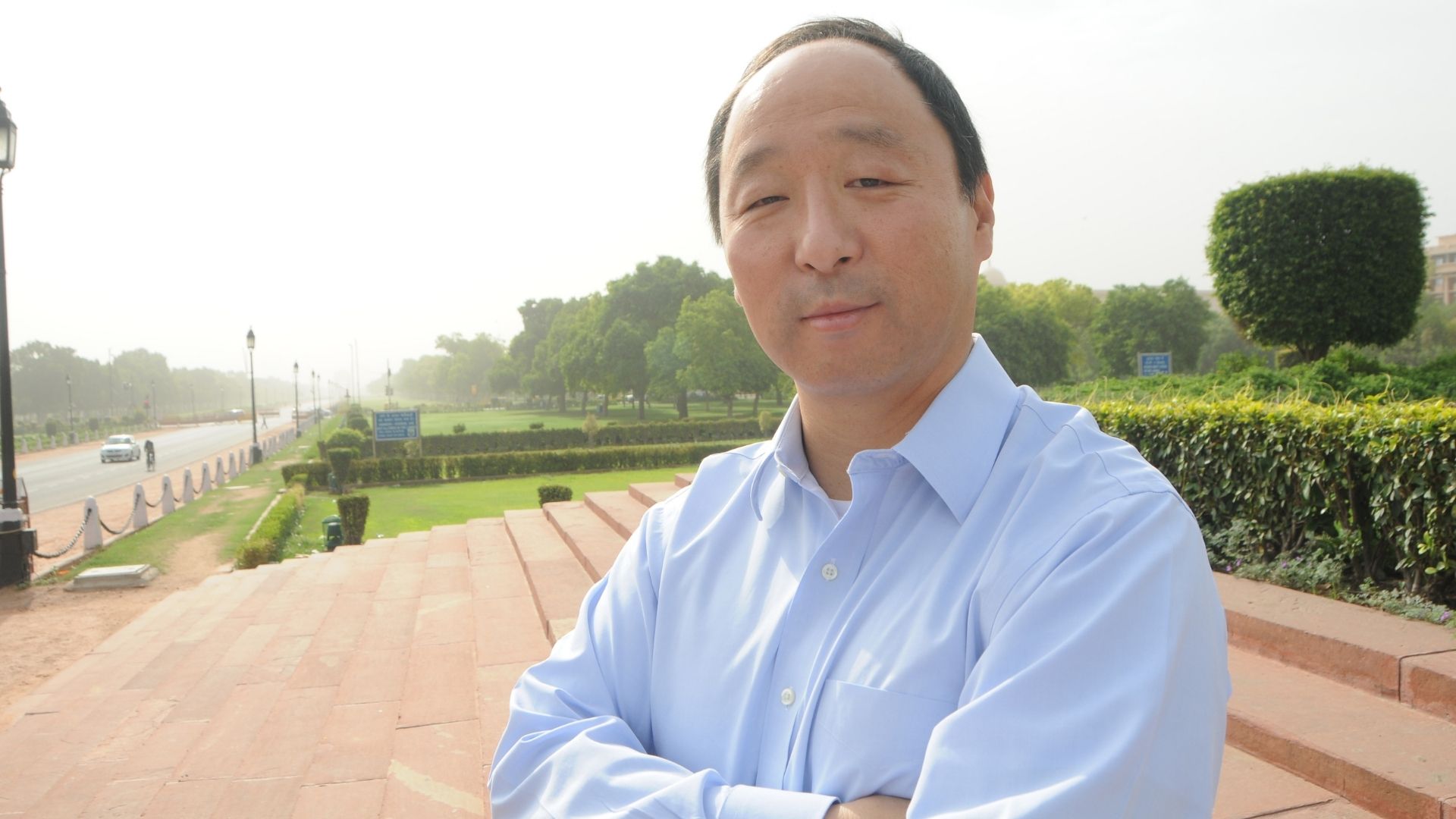Alumni interviews are an important part of the U.S. university admissions process and help find the right candidate for an institution.
July 2019

Eugene Bae, alumni interviewer for MIT, and Assistant Cultural Affairs Officer at the U.S. Embassy in New Delhi. Photograph by Hemant Bhatnagar
The admission process at U.S. universities is quite rigorous. Not just for prospective students, but also for the institutions. Given the large, and growing, number of applicants every year, admissions officers often find it difficult to meet and review all of them. But, universities do have a loyal group of alumni who are happy to get involved in the process, by interviewing prospective students.
One such alumnus, with about a decade-long experience in conducting interviews, is Eugene Bae. He holds a master’s degree in technology and policy as well as a doctorate in nuclear engineering from the Massachusetts Institute of Technology (MIT). Bae currently works as an Assistant Cultural Affairs Officer in the Public Affairs Section at the U.S. Embassy in New Delhi.
Excerpts from an interview.
Could you please tell us a bit about your role as an alumni interviewer for MIT?
I was looking for ways to give back to MIT, because of the great education that I received there. One of the ways was to participate as, what we call, educational counselors. They are part of a global alumni network, which assists the MIT admissions office in its evaluations of applicants. I’ve been doing it for about 10 years. I started in Beijing, did it in Korea and I am looking forward to continuing this here in India.
The educational counselors’ work is really focused on the undergraduate admissions process. Students’ application packages typically include their transcripts from high school, standardized test scores, letters of recommendation, awards, recognitions and so on. All these things are very quantitative and descriptive. But, as MIT and many other institutions understand, a kind of personal connection is important to assess whether or not a student would be a good fit for the school.
An institution utilizes its alumni network around the world to meet prospective students. We tell them what a great institution it is, share our own experiences about what we did during our time there and answer questions that they might have to help them determine if the institute is the right fit for them. Alumni interviews provide a way to get some additional perspective on a student’s background, interests, passions, motivation level and so on.
What are some of the main qualities that interviewers look for in their candidates?
I think that each university has its own criteria and way of evaluating students. Universities usually look for someone who is intellectually stimulated, a self-starter, intellectually curious; someone who has demonstrated maturity, communicates well; someone who is strong in the different academic disciplines.
That said, I look for students who have demonstrated that they have a deep and active passion for the field of study they’re interested in. I’m keen to know how they have taken their interest in a field and done something to demonstrate a passion for it that goes beyond just “I like it.”
The second thing that we look for is students who are a good match for the institution. We sometimes look for that indescribable, intangible quality of someone who is just, for lack of a better word, brilliant. Someone you meet and, within five minutes of a conversation, you are just awed by their intellectual stimulation, rigor and enthusiasm. You feel that this person would make a tremendous contribution to your alma mater.
Educational counselors need to express these qualities through examples and anecdotes. I use the interview process to get to know the students—Why are they the way they are today? Who shaped their interests? What life events? What encouraged them to pursue a particular field of study? I have a few questions that I ask. But, the conversation really goes in the direction that the students want to take it; I’m just along for the ride.
Do you have any tips for a successful interview?
Number one: prepare. I don’t mean that you look in a mirror and rehearse lines—that becomes pretty obvious to the interviewer. What I mean is spend some time asking yourself some serious questions, like “Why do I want to go to this institute?” “What is it that really interests me about that school?” “What would I do if I were given that opportunity?” “Is there something special about this institute versus many other great universities?”
The second thing I would say is that students should be honest with themselves. When a person starts talking about something that they are genuinely passionate about, you don’t have to spur them on to talk about it. Genuine interest and passion just flow out of that person during the conversation. I’m not saying that you have to know everything about the institute. I try to discern if a student has deep passion about something, whether it be a social, economic, political, religious, academic or scientific issue. We want to understand what are those passions and what is it about you that is unique or different.
Also, be on time, be respectful and dress appropriately for the interview. And lastly, and this is the hardest part: try to have fun. I know that the application process is a stressful time and getting a call for an interview with alumni can seem overwhelming. But, just go out there, do your best and enjoy yourself.
COMMENTS